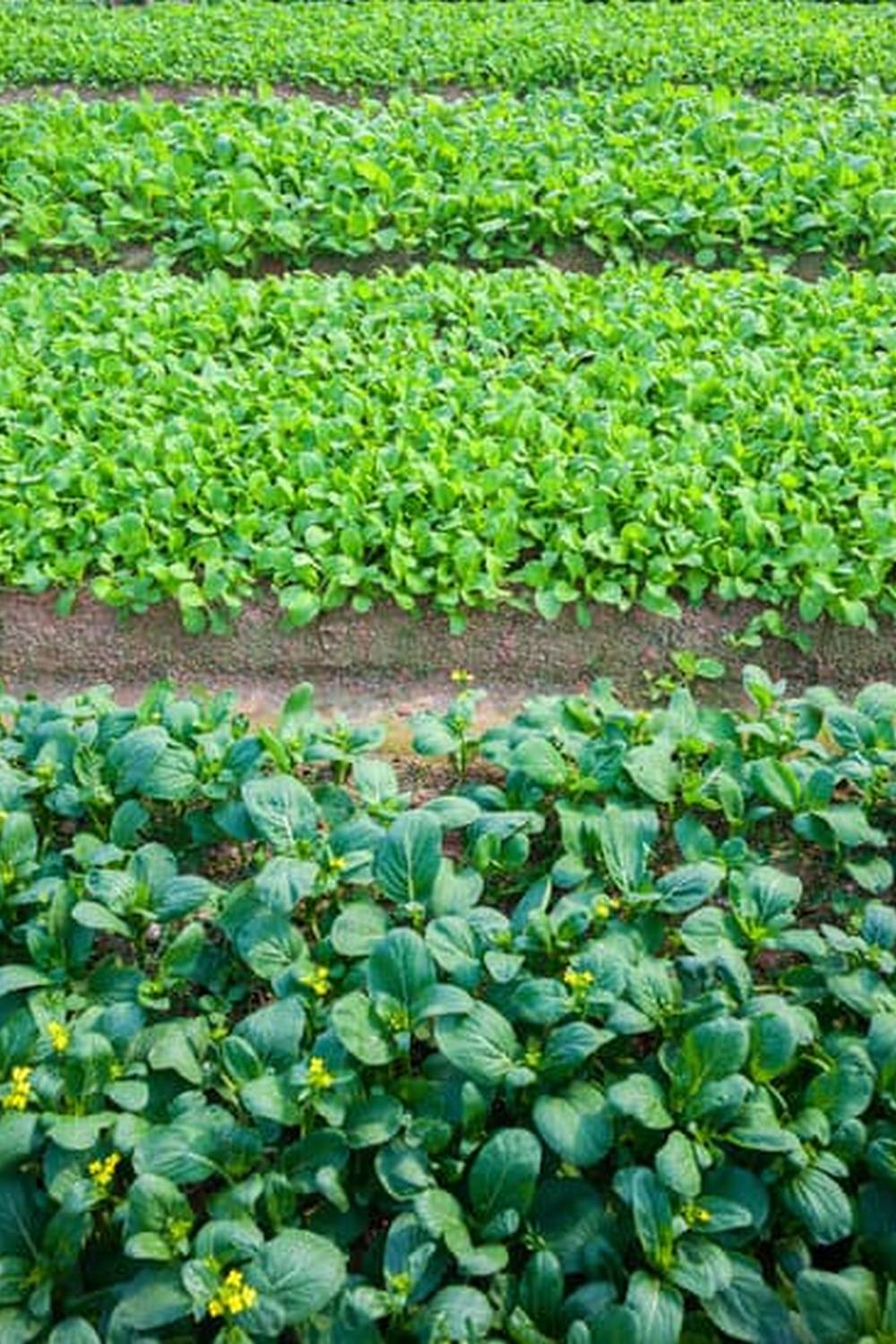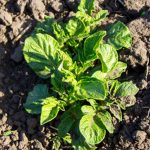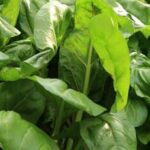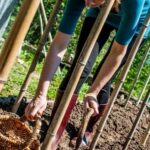Florida Vegetable Gardening for Beginners offers aspiring gardeners valuable insights and practical tips on how to cultivate a fruitful garden in the unique climate of Florida. Whether you’re a seasoned gardener looking to expand your skills or a novice eager to try your hand at planting, this guide will equip you with the knowledge needed to kickstart your gardening journey.
From selecting the right vegetables for Florida’s growing seasons to understanding soil preparation and pest control strategies, this article covers it all.
When it comes to successful vegetable gardening in Florida, understanding the state’s climate and soil characteristics is key. With its subtropical climate and sandy soils, Florida presents both challenges and opportunities for gardeners. By delving into the nuances of the local environment, beginners can make informed decisions when planning their vegetable gardens. Additionally, selecting the appropriate vegetables that thrive in Florida’s growing seasons is crucial for a bountiful harvest.
Preparing and maintaining the soil in your Florida vegetable garden is not only about ensuring proper drainage and nutrient levels but also about fostering a healthy ecosystem for plant growth. By incorporating essential tools and equipment tailored to beginner gardeners’ needs, individuals can simplify the process of tending their gardens effectively. Moreover, learning about pest control and disease management strategies specific to Florida’s conditions will help mitigate potential threats to your plants’ well-being.
Understanding the Florida Climate and Soil for Successful Vegetable Gardening
Florida is a unique state when it comes to vegetable gardening due to its specific climate and soil conditions. Understanding these factors is crucial for the success of any beginner gardener in the Sunshine State. The climate in Florida varies from region to region, but overall, it is characterized by hot and humid summers, mild winters, and high rainfall throughout the year. This means that certain vegetables thrive better than others in this type of environment.
When it comes to soil, Florida also presents some challenges because of its sandy and nutrient-poor soil composition in many areas. It is essential for beginner gardeners to amend their soil with organic matter such as compost or manure to improve its fertility and water retention capabilities. Additionally, testing the pH level of the soil is important to determine if any adjustments need to be made for specific vegetables to grow successfully.
One key aspect of successful vegetable gardening in Florida is timing your plantings according to the growing seasons. The state can be divided into different planting zones based on temperature and frost dates.
Knowing which vegetables are best suited for each season can significantly impact your harvest. For example, warm-season crops like tomatoes, peppers, and squash are typically planted in the spring after the last frost date, while cool-season crops like lettuce, broccoli, and carrots thrive in the fall and winter months.
| Climate | Hot and Humid Summers, Mild Winters |
|---|---|
| Soil | Sandy and nutrient-poor; amend with organic matter |
| Planting Seasons | Warm-season crops planted in spring; cool-season crops in fall/winter |
Selecting the Right Vegetables for Florida’s Growing Seasons
When starting a vegetable garden in Florida, one of the most important factors to consider is selecting the right vegetables for the state’s unique growing seasons. Florida’s climate can vary greatly from the northern to southern regions, affecting when certain vegetables can be successfully grown. It is essential for beginner gardeners to understand the different growing seasons and which vegetables thrive best during each time of year.
In Florida, there are typically two main growing seasons: fall/winter and spring/summer. During the fall/winter season, cool-season vegetables such as broccoli, cauliflower, carrots, lettuce, and spinach tend to do well in the milder temperatures. These crops can be planted in late summer or early fall for a harvest throughout the cooler months.
On the other hand, spring/summer is ideal for warm-season vegetables like tomatoes, peppers, cucumbers, squash, and beans. These veggies love the heat and sunshine that Florida summers provide.
For beginners looking to start their vegetable garden in Florida, it may be beneficial to begin with easy-to-grow options that are well-suited to the state’s climate. Some recommended vegetables for beginners include tomatoes, peppers, zucchini, cucumbers, and herbs like basil and oregano.
These plants are relatively low maintenance and can thrive in both of Florida’s growing seasons with proper care and attention. By selecting the right vegetables based on Florida’s distinct seasonal conditions, beginner gardeners can set themselves up for a successful harvest and enjoyable gardening experience all year round.
Tips for Preparing and Maintaining the Soil in Your Florida Vegetable Garden
When it comes to starting a successful Florida vegetable gardening for beginners, one crucial aspect to consider is the soil preparation and maintenance. Ensuring that your soil is nutrient-rich and well-suited for vegetable growth can make a significant difference in the success of your garden. Here are some tips to help you prepare and maintain the soil in your Florida vegetable garden:
- Test your soil: Before planting any vegetables, it’s essential to test your soil to determine its pH levels and nutrient content. You can purchase DIY soil testing kits or have a professional test done to get accurate results.
- Amend the soil: Based on the results of your soil test, you may need to amend your soil with organic matter such as compost, manure, or peat moss to improve its texture and fertility. Incorporating organic materials will help provide essential nutrients for healthy plant growth.
- Practice crop rotation: To prevent depletion of nutrients and control pests and diseases, consider practicing crop rotation in your vegetable garden. This involves planting different types of vegetables in different areas each growing season to maintain soil health.
Additionally, mulching is an excellent way to retain moisture in the soil, suppress weeds, and regulate temperature fluctuations. Organic mulches like straw, grass clippings, or shredded leaves can provide added benefits to your Florida vegetable garden. Taking care of your soil through proper preparation and maintenance will set a solid foundation for a thriving garden full of delicious vegetables.
Remember that the key to successful Florida vegetable gardening for beginners lies in understanding and caring for the soil where your plants will grow. By following these tips for preparing and maintaining the soil in your vegetable garden, you’ll be on your way to cultivating a bountiful harvest of fresh produce right at home in sunny Florida.
Essential Tools and Equipment Needed for Beginner Florida Vegetable Gardeners
When starting a Florida vegetable garden as a beginner, having the right tools and equipment is essential for success. Here are some must-have items to help you get started on your gardening journey:
Gardening Gloves
Protecting your hands while working in the soil is crucial. Invest in a good pair of gardening gloves to prevent blisters, cuts, or contact with potentially harmful substances in the garden.
Hand Trowel and Shovel
These tools are essential for digging, planting, and transplanting seedlings in your vegetable garden. Choose sturdy options that can handle the Florida soil without breaking easily.
Rake and Hoe
A rake is useful for leveling soil and clearing debris, while a hoe helps with weeding and cultivating the soil. These tools are important for maintaining the health of your garden beds.
Irrigation System
In Florida’s climate, consistent watering is key to ensuring healthy plant growth. Consider investing in a drip irrigation system or soaker hoses to efficiently water your vegetable garden without wasting water.
Having these essential tools and equipment on hand will not only make it easier for you to maintain your Florida vegetable garden but also increase your chances of having a successful harvest. Remember to take care of your gardening tools by cleaning and storing them properly after each use to prolong their lifespan and effectiveness.
Pest Control and Disease Management Strategies in Florida Vegetable Gardens
When it comes to successful Florida vegetable gardening for beginners, managing pests and diseases is crucial to ensure a bountiful harvest. The warm and humid climate in Florida can create the perfect environment for various pests and diseases to thrive. However, with the right strategies and techniques, you can effectively protect your vegetable garden.
Here are some pest control and disease management strategies that beginner Florida vegetable gardeners can implement:
- Practice crop rotation: Rotating your crops each season can help prevent the build-up of pests and diseases in the soil.
- Use non-toxic pest control methods: Consider using natural predators, like ladybugs or praying mantises, to control pest populations in your garden.
- Regularly monitor your plants: Keep an eye out for any signs of pests or diseases on your plants, such as holes in leaves or discoloration. Early detection can help prevent the spread of issues.
In addition to these strategies, it’s also essential to properly identify any pests or diseases that may be affecting your garden. By knowing what you’re dealing with, you can then research specific methods or products that target those issues effectively. Consulting with local agricultural extension services or experienced gardeners in your area can also provide valuable insights into managing pests and diseases specific to Florida’s climate.
Remember that prevention is key when it comes to pest control and disease management in your Florida vegetable garden. By staying proactive and implementing these strategies, you can help protect your plants and enjoy a healthy, thriving garden throughout the growing seasons.
Watering and Irrigation Techniques to Ensure a Healthy Vegetable Garden in Florida
Florida’s unique climate poses both challenges and opportunities when it comes to vegetable gardening. One of the most crucial aspects of successful vegetable gardening in Florida is proper watering and irrigation techniques. With the combination of high temperatures and sandy soils, maintaining adequate moisture levels for your plants is essential for a bountiful harvest.
In Florida, the general recommendation for watering vegetable gardens is about 1 inch of water per week. However, this may vary depending on the specific vegetables you are growing, the stage of growth they are in, and the weather conditions. It’s important to monitor the moisture levels in your soil regularly to ensure that your plants are getting enough water without becoming waterlogged.
To achieve optimal watering results, consider utilizing drip irrigation systems or soaker hoses in your Florida vegetable garden. These methods deliver water directly to the roots of your plants, reducing water waste through evaporation and minimizing opportunities for fungal diseases to develop. Additionally, implementing mulch around your plants can help retain soil moisture and reduce the frequency of watering needed.
| Vegetable Watering Requirements | Recommended Irrigation Techniques |
|---|---|
| Tomatoes | Drip irrigation system |
| Peppers | Soaker hoses |
| Squash | Mulching with straw |
By following these watering and irrigation techniques tailored to Florida’s climate and soil conditions, beginner vegetable gardeners can set themselves up for success in cultivating a healthy and thriving garden. Remember that consistency is key when it comes to watering your plants – establishing a routine and paying attention to signs of over or under-watering will help you maintain a flourishing vegetable garden throughout the seasons.
Harvesting and Enjoying the Fruits of Your Labor
Proper Harvesting Techniques
When it comes to harvesting your vegetables in your Florida garden, timing is key. Each vegetable has its own ideal harvesting window, so it’s important to research and understand when is the best time to pick them.
For example, tomatoes should be harvested when they are fully colored but still firm, while cucumbers should be picked when they are dark green and about 6-8 inches long. Overripe or underripe vegetables may not have the best flavor or texture, so being vigilant in harvesting at the right time is essential.
Enjoying Your Fresh Produce
One of the most satisfying parts of vegetable gardening is getting to enjoy the fruits of your labor. Whether you cook up a delicious stir-fry with your freshly harvested bell peppers and squash or simply enjoy a crisp salad made with homegrown lettuce and cherry tomatoes, there’s something special about eating food that you’ve grown yourself.
Additionally, sharing your harvest with friends and family can be a great way to spread the joy of gardening and showcase the delicious flavors of locally grown produce.
Preserving Your Harvest
If your garden produces an abundance of vegetables that you can’t consume all at once, consider preserving them for later use. Canning, pickling, freezing, or drying vegetables are all great ways to extend the shelf life of your harvest.
By preserving your vegetables, you can continue to enjoy the taste of fresh Florida-grown produce even after the growing season has ended. Plus, having a stockpile of preserved veggies can come in handy during times when fresh produce may not be as readily available.
Resources for Further Learning and Support in Florida Vegetable Gardening for Beginners
As you embark on your journey into Florida vegetable gardening for beginners, it is important to know that there are abundant resources available to support you in this rewarding endeavor. Whether you are looking for online guides, local workshops, or expert advice, there are plenty of avenues to explore to enhance your knowledge and skills in cultivating a thriving vegetable garden in Florida.
One valuable resource for beginner Florida vegetable gardeners is the University of Florida IFAS Extension. This extension program offers a wealth of research-based information, publications, and resources specifically tailored to gardening in the unique climate and soil conditions of Florida. By tapping into these resources, you can gain insights into best practices, pest management strategies, and techniques for maximizing your harvests.
Additionally, joining a local gardening club or community garden can provide you with hands-on experience, mentorship from seasoned gardeners, and a sense of camaraderie with like-minded individuals. These opportunities not only offer practical guidance but also foster a sense of community and shared passion for gardening.
Remember that learning and growing as a gardener is a continuous journey, and by leveraging these resources, you can cultivate a thriving vegetable garden that brings joy and abundance for years to come.
Frequently Asked Questions
What Are the Easiest Vegetables to Grow in Florida?
One of the easiest vegetables to grow in Florida is okra. It thrives in the warm temperatures of the state and requires minimal maintenance. Other easy-to-grow vegetables in Florida include cherry tomatoes, peppers, and sweet potatoes.
When Should I Start a Vegetable Garden in Florida?
In Florida, the best time to start a vegetable garden is in the fall or winter. This allows you to take advantage of the milder temperatures and lower humidity levels that are more conducive to successful gardening. Starting a vegetable garden during these seasons can help your plants establish strong root systems before the heat of summer arrives.
What Is the Easiest Vegetable Garden for Beginners?
A vegetable garden with leafy greens like lettuce, spinach, and kale is often recommended for beginners. These vegetables are relatively low-maintenance and grow quickly, providing beginners with a sense of accomplishment early on in their gardening journey.
Additionally, herbs like basil and mint are also easy to grow and can be a great starting point for novice gardeners looking to gain experience with growing their own food.

If you’re looking to get into vegetable gardening, or are just looking for some tips on how to make your current garden better, then you’ve come to the right place! My name is Ethel and I have been gardening for years. In this blog, I’m going to share with you some of my best tips on how to create a successful vegetable garden.





